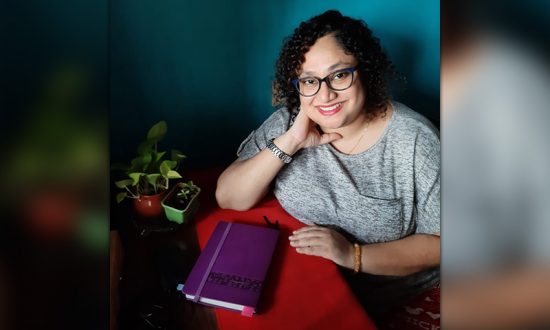Avalanne Dsouza is a Psychologist and Arts-Based Therapist practicing in Mumbai. She has been working at The Aditya Birla Integrated School as a school counsellor for the last three years and her training in both eastern and western psychology gives her a unique perspective on healing the emotional and behavioural needs of others.
According to researchers Muthusamy and Sahu, in 2020, the prevalence of specific learning disabilities ranges from 5 to 15 % in India. Also observed are co-morbidities that include attention deficit hyperactivity disorder, conduct disorder, depressive disorder, anxiety disorder, autism spectrum disorder as well as other behavioral and emotional issues. [1] Being diagnosed with a learning disability makes a child vulnerable to stigma that relates to academic performance and emotional disturbances.
I have been working at the Aditya Birla Integrated School for almost 4 years now. Our school nurtures, educates and encourages children with specific learning disorders to reach their full potential and achieve academic as well as personal success. As a school psychologist, I constantly get to speak to the learners about their journey and how their learning disabilities affect their academic and social world. Through their testaments, it is evident that the stigma and judgements they face when they interact socially with their peers is what really disheartens and upsets them the most; even compared to their academic difficulties. Oftentimes gaining acceptance from some close family members can also be a struggle.
This clearly indicates that there is a lack of awareness amongst the general population about learning disabilities which makes the identification process even harder. In most cases parents and teachers perceive the child as just ‘lazy’, ‘slow’, ‘disinterested’, ‘distracted’, ‘trouble-makers’, and so on. Most students report poor relationships with teachers and peers as one of the main reasons for either shifting or dropping out of school or college. Comorbid disorders like ADHD, anxiety and depression can further worsen the situation. The stigma also makes it extremely hard for the learners to get the adequate help and guidance they need to improve.
Therefore, the first step to combat stigma surrounding learning difficulties is to educate both the parents and teachers to identify learning disabilities. Learning disabilities are neuro-developmental in nature. This makes the problem ‘brain-based’ not motivational, which means that the students’ brains are wired and develop differently. Hence, the way they process information is different from others. This is not a reflection of their intelligence but rather an issue of inadequate support in most schools in India. Studies have shown that students with learning disabilities can do quite well if they are supported with the right teaching methods and adequate resources.
I believe that not just the students, but the parents and teachers also need guidance and training to manage the learning disability along with the emotional and behavioural problem that stem from it. Training the adults around the student creates a consistent support system for the learners which will reassure them and bring back their confidence in their ability to learn and retain information.
Which brings me to my second point, ‘nurturing the student’s self-concept.’ The way students view themselves greatly affects their levels of confidence and self-esteem. Many students with learning disabilities often believe that they can ‘NEVER’ be good at math, science or languages. This belief negatively impacts their emotional and mental health, causing them to either resent those around them or hate themselves for not being ‘good enough’. This has a long lasting effect on their future, both personally and socially.
Educating children to understand that their learning disability only form one part of their self-identity. They have other talents, skills and strengths that are also an integral part of who they are. They are not just students but also friends, sons, daughters, grandchildren, siblings, artists, athletes, actors, musicians, singers and much more. When we only focus on their learning disabilities, it’s like buying a two-bedroom apartment but only living in the kitchen.
Think for your child or learner as a house with many rooms, you may find that you have not discovered all the rooms yet, but it is never too late. We need to also be mindful that our children don’t put up the sign ‘not good enough’ outside that house. Rather encourage them to go on a self-exploration trip, where they can recognise their strengths, learn from the weaknesses and breakthrough their limitations.
Teach them that everyone faces challenges even the smarter students, but their challenges might look different from yours. Be empathetic and share your own stories of vulnerability with them. Show them through your example that they can persevere through their trials and that ‘failure’ does not equate to stopping. Share with them stories of other individuals who have overcome their learning disabilities and found success like Tommy Hilfiger or Daniel Radcliff.
This will help them accept and understand themselves better, nurture their creativity, innovate and choose with confidence a field of work or study that plays to their strengths and passions.
References
- Muthusamy, K., Sahu, J.K. Specific Learning Disability in India: Challenges and Opportunities. Indian J Pediatr87, 91–92 (2020). https://doi.org/10.1007/s12098-019-03159-0




